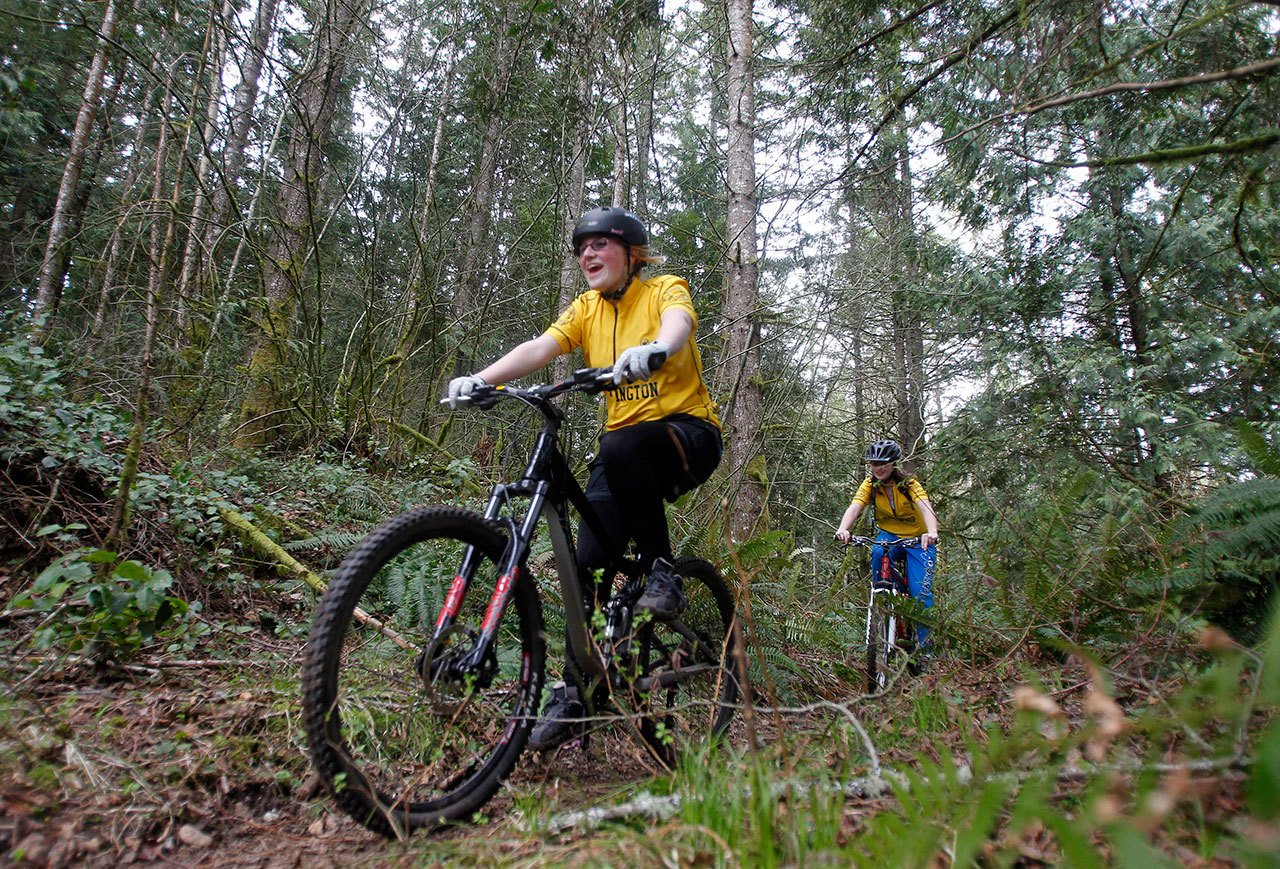By The Herald Editorial Board
Since it was shepherded into law by Everett’s Sen. Henry M. “Scoop” Jackson, the Wilderness Act of 1964 has set aside more than 109 million acres in the United States — 4.5 million in Washington state — where the only approved locomotion is by foot or horse hoof.
A bill proposed earlier this summer in the U.S. Senate could extend that to the knobby tires of mountain bikes.
Wilderness areas, contained within national forests, national parks and other public lands, preserve the nation’s wild places, allowing only nonmechanized travel so that the impacts on ecosystems are limited. Although allowed elsewhere in national forests, some national parks and other public lands, mountain bikes have been specifically banned from wilderness areas since 1984.
But as mountain biking has gained in popularity, and new wilderness areas have been proposed and established in areas where mountain biking was previously allowed, more have sought to open the areas to those on mountain bikes.
It’s hard to argue with the contention of some riders that mountain bikes pose no more risk of damage than do hikers or horseback riders.
There’s also an argument to be made that keeping mountain bikers invested in promoting public lands works in the interest of protecting wilderness.
But environmental groups, including two of the state’s top groups — Washington Wild and Conservation Northwest — are leery of opening the door to changes in the Wilderness Act that could weaken its protections.
And even some mountain bike associations also are opposed. A McClatchy news service story in The News Tribune last week noted that some mountain bike associations are opposed because they don’t want to jeopardize the good working relationship they’ve developed with the preservation groups.
That cooperation was evident when the Alpine Lakes Wilderness in the Wenatchee and Snoqualmie national forests was expanded by 22,000 acres in 2014. Both groups worked to alter the boundaries of the expansion to preserve bike access to the popular Middle Fork Snoqualmie trail.
It’s a different outcome than one in Idaho when mountain bikers were shut out of previously used trails with the creation of the Boulder-White Clouds Wilderness in 2015.
The legislation in the U.S. Senate, currently opposed by Washington’s Democratic Sens. Patty Murray and Maria Cantwell, would give the federal agencies that manage specific wilderness areas two years to decide whether to allow mountain bikes. If no decision is made within two years, the ban would be lifted automatically.
For agencies already swamped with other management tasks, a two-year time frame isn’t as generous as it might sound.
Others have suspicions based on the sponsors of the bill: Utah Republican Sens. Orrin Hatch and Mike Lee, neither of whom rank highly on various environmental group scorecards.
A New York Times report brought up the concerns among some that the bill was more likely intended to drive a wedge between the recreation and environmental groups and might also be tied to efforts among some conservatives to get the federal government to divest itself of public lands.
Noting those suspicions, there is merit in a larger discussion about allowing mountain bikes in wilderness areas. Slippery slope arguments go only so far and fail to recognize a group of potential users who, like the hikers and horseback riders before them, value wilderness areas, use them responsibly and are needed as part of the coalition that protects them.
Talk to us
> Give us your news tips.
> Send us a letter to the editor.
> More Herald contact information.

























